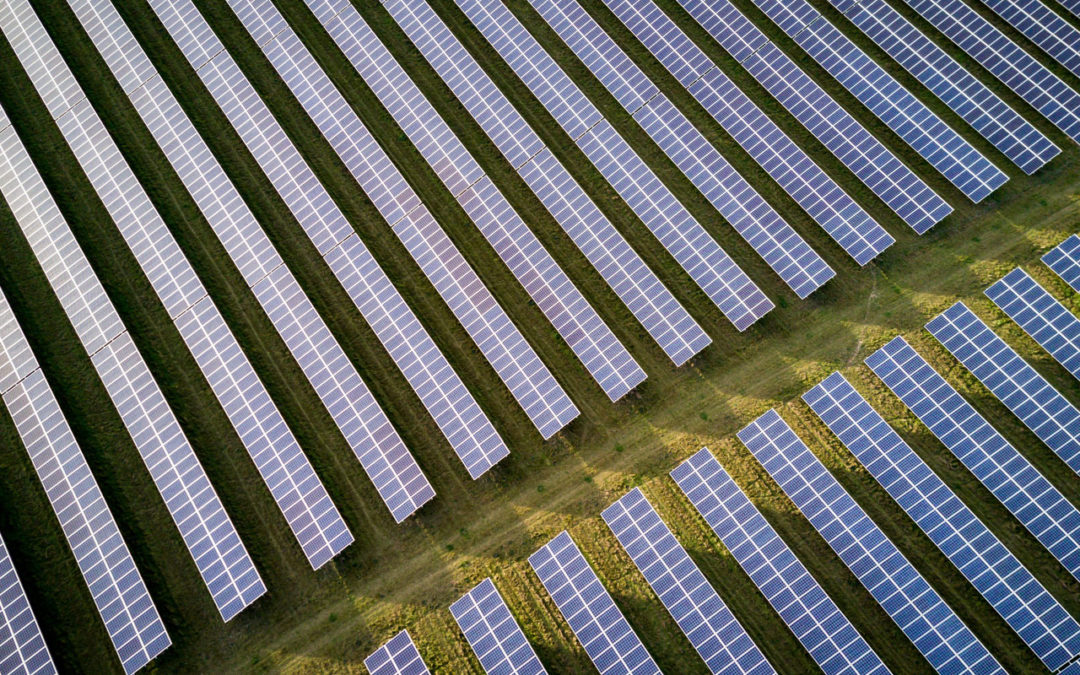High Noon Solar Energy Center is a 300 megawatt solar project with a 165 MW battery energy storage system proposed in southwest Columbia County, near Portage. As designed, High Noon would supply homegrown, affordable, emission-free electricity to power the equivalent of approximately 58,000 homes. If approved, High Noon would begin producing clean power by the end of 2025. For more information, visit the application here and RENEW Wisconsin’s testimony here.
An exemplary testimony to the benefits this project offers Columbia County comes from PSC comments submitted by Larry Nelson, a 4th generation farmer in Lodi, Wisconsin.
I support High Noon Solar. I am a participating landowner and 4th generation farmer on a century family farm. We grow corn and soybeans on our farm. 100% of our Corn goes to ethanol. With the auto manufacturers transitioning to electric vehicles, I am very concerned as to what this will do to our ethanol market and increased demand for electricity. Since our family started farming in the 1800s, there has been a lot of changes to agriculture and ways to be profitable. Our family has adapted over the years to remain in agriculture and stay profitable. This is not an easy task as many family farms have disappeared over the years. The High Noon Solar project is an opportunity for us to diversify our farm income. In my opinion this is just another way to farm the sun, just as we have done to grow crops over the years. Our farmland in this project does not disappear. This is a temporary use of our land. It will be seeded down and have solar arrays on it. By seeding it down the land will be protected from erosion and runoff. Our land naturally drains and we have NO DRAIN TILE. We use commercial fertilizers on our farm along with chemicals as needed. We do not have any livestock so no manure is spread on our land. The environmental assessment has been done. There are no significant impact. This project will bring beneficial jobs into our community and will have a positive economic impact. This will also bring in 1.2 million in annual tax payments to Columbia County and participating townships. There are many financial benefits from this project in all aspects but the most important one is this is good for our environment and we are doing our part to fight climate change for future generations. Thank you for your consideration.
Larry Nelson
Lodi, Wisconsin
Proposed power plants larger than 100 megawatts must gain approval from the Public Service Commission of Wisconsin (PSCW) before they can proceed to construction. Along the way, there are opportunities for public comment at the township, county, and state levels. Please help us demonstrate Wisconsin’s enthusiastic support for solar power in general and this project in particular by submitting a comment in support of the High Noon Solar Energy Center. Be sure to specifically reference the project and the benefits that it can bring to Wisconsin. The deadline for submitting comments is March 1, 2023.
[Note: Your comments need not be as lengthy as the sample below, which was drafted to present various supporting perspectives on health, environmental sustainability, and rural economic development. We encourage you to articulate the points that matter most to you. But it’s OK to frame your comments at a very high level if that’s what you’re comfortable with.]
SAMPLE COMMENT
I write in support of the High Solar Energy Center, presently under review at Docket No. 9814-CE-100. This project, like other combined solar and battery storage projects approved by the PSCW in recent years, would protect human health and the natural environment while strengthening the state’s economy.
Consistent with Wisconsin’s Energy Priorities Law, High Noon will provide these benefits by converting locally available, noncombustible renewable energy resource—sunshine—to electricity, and feeding zero-emission into existing power lines and the battery energy storage system onsite. As configured, High Noon will displace fossil fueled generation at all times, which will measurably reduce the volume of airborne pollutants and greenhouse gases discharged from Wisconsin sources.
In-state solar projects can be counted on to energize the local economy through increased revenues to local governments while diversifying our resource mix and bringing Wisconsin a step closer to energy self-sufficiency. The economic benefits come in two forms. Initially, High Noon will create between 600 and 700 jobs in Wisconsin during the project’s construction phase. Second, once it has been placed in service, High Noon will provide rental income to participating landowners as well as payments in lieu of taxes to local jurisdictions hosting the project. Projects like these can also provide an economic hedge to farmers and rural landowners whose products are subject to commodity market forces and weather conditions that are beyond their control and can often be unforgiving.
In addition to the health and environmental benefits referenced above, High Noon will also deliver benefits to the land within in the project’s footprint. The developer proposes to revegetate the land with a mix of deep-rooted plants under and around the installation. Managing the land in this fashion will improve soil health, reduce erosion, and increase biodiversity. Finally, High Noon will have no measurable impact on local agricultural output, as crop yields per acre in Columbia County have steadily increased since 1960.
I respectfully encourage the PSCW to rule that High Noon Solar Energy Center is in the public interest and issue a permit enabling the project to proceed to construction. Thank you for your consideration of my views.

